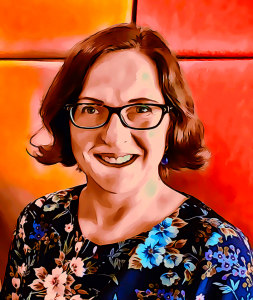148 Letter from Kirsten Holmes

Dear future colleagues
I’ve been privileged to be able to pursue a career as an academic in two countries for over two decades through a period of enormous change for universities. The nature of the work and the expectations of academic researchers have changed significantly over this period. The candidates applying for entry level positions currently are outstanding and their CVs far exceed mine at a similar career stage. I do, however, have some experience and can offer the following advice based on my own career and that of my colleagues over the years.
Firstly, enjoy the work. This is essential. Universities are heartless places to work but if you enjoy what you are doing, you can shut out some or all the unpleasant noise.
Find wonderful people with whom to work – both inside and outside your institution. You can’t pursue a successful research career on your own, at least it is much harder and it is also much less fun. Working with wonderful colleagues will bring you joy. You will share the successes, commiserate together over rejections and support each other through the challenges that universities like to throw at their staff.
Keep in touch with colleagues when you move institutions and countries. These are the people who you are not actually doing research with but perhaps you taught together or chatted over coffee. I have not been very good at this, I’m a natural introvert, but try and keep up these relationships. Invite colleagues to give online guest lectures to your students or attend an online seminar your new institution is hosting – just keep in touch.
Think big with your research projects. It takes about the same amount of work to write a small grant proposal as to write a large application so aim high.
Don’t be an a**ehole. My apologies for the language but this is a mantra of mine. I am appalled by the way some senior colleagues behave and treat colleagues, especially junior or professional staff. I am also irritated when senior colleagues cannot give bad news and mess up the delivery. We have all been there – be clear and be compassionate. Treat people with respect in your field and in your institution.
Call out poor behaviour. It is not acceptable, do not let others get away with it. Ensure that your institution has policies, procedures or guidelines that you can call on when you are challenging others about their behaviour. If your institution does not have these yet – introduce them!
Be flexible – only about half of my research is within the tourism field, broadly defined. The rest is in the wider not-for-profit sector. Perhaps this means I am less well-known in either field but it creates more opportunities for me. I have taught a fairly wide range of subjects over the years. The university pays me to teach and do research. I have been able to research whatever I wanted over the years so long I delivered the teaching as specified. I am happy to be flexible in what I teach if it allows me autonomy over my research.
Grow your discipline. This is not about your research or your teaching but about professional associations and your field more broadly. Join the associations, nominate for positions on their boards, work with colleagues across institutions and countries to promote your discipline and make it a better field within which to work.
Finally, academia and research do not have to be your life. Early on in my career I witnessed the distress of colleagues when things go badly in academia, often through no fault of their own. I have experienced those moments as well. Once upon a time my job was given away to a male colleague while I was on parental leave. It was a low point in my career and my life but having a wonderful family with two gorgeous children kept me going. You need something else in your life during the dark times.
Of course, I hope you will experience all of the positives and none of the downsides of working as a researcher in 21st century academia, and thoroughly enjoy your research careers.
Wishing you all the best with your endeavours!
Kirsten
Kirsten Holmes
Curtin University, Australia

